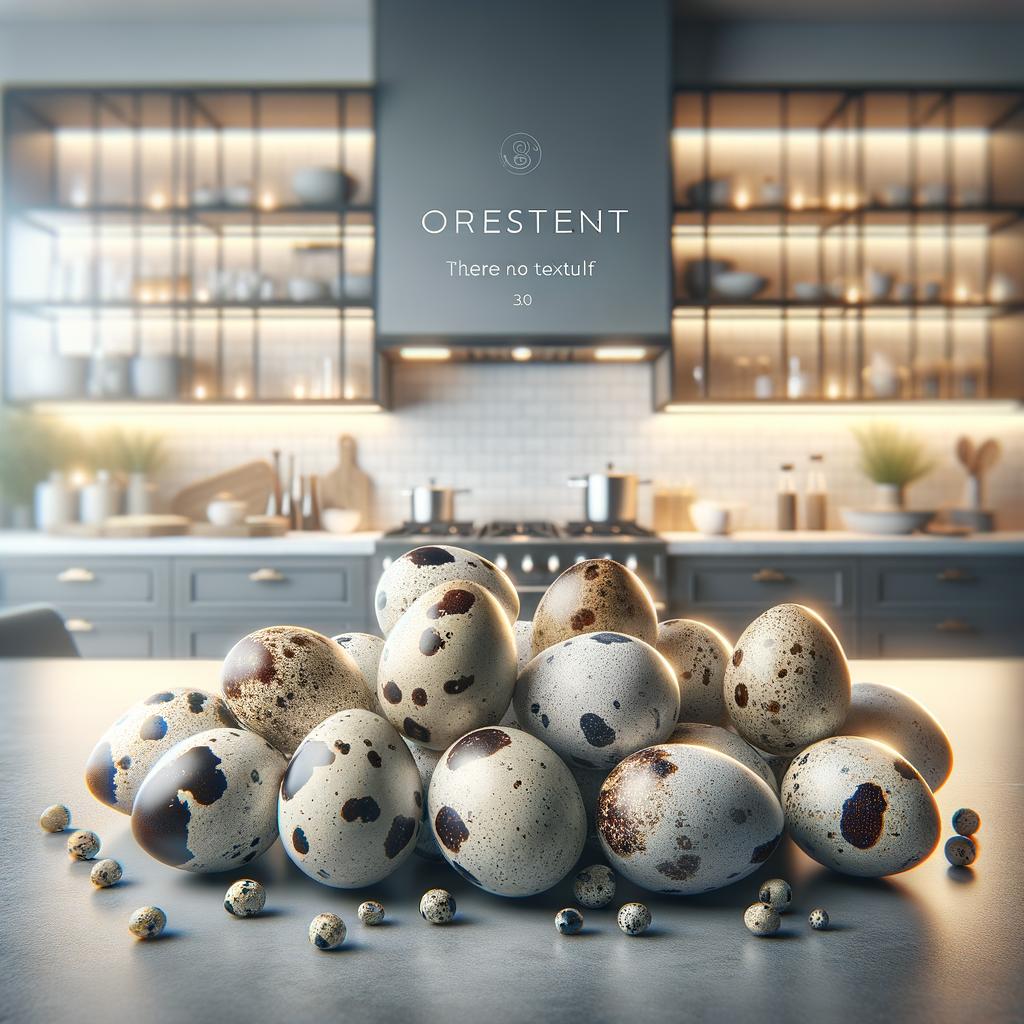Quail Eggs

Description
Quail eggs, the petite and speckled treasures of the culinary world, are the diminutive yet nutrient-packed offerings from the quail bird. They are charmingly small, about one-fifth the size of a chicken egg, and are encased in a beautiful shell that's often mottled with an array of colors, from cream to dark brown. The flavor of quail eggs is similar to that of chicken eggs, but with a subtly richer and more robust taste, owing to a higher yolk-to-white ratio. Their delicate size and distinctive flavor set them apart from other poultry eggs.
Primary Uses
In the culinary world, quail eggs are celebrated for their versatility and unique aesthetic appeal. They can be boiled, poached, fried, or pickled, and are a key component in numerous dishes across various cuisines. In Japanese cuisine, they are often used in sushi and bento boxes, while in the Philippines, they are a favorite street food, known as "kwek-kwek", when deep-fried in an orange batter. In French cuisine, they are used in elegant salads and appetizers. Beyond their culinary uses, quail eggs are also valued in some cultures for their supposed medicinal properties, including improved digestion and enhanced immune function.
History
Quail eggs have a rich and fascinating history. They were first domesticated in Asia, where they were prized for both their culinary and medicinal properties. In ancient Egypt, quails and their eggs were considered sacred and were used in religious ceremonies. The use and popularity of quail eggs have evolved over time, with their appeal reaching global proportions today. An interesting folklore associated with quail eggs is the belief in some cultures that they possess aphrodisiac properties.
Nutritional Information
Despite their small size, quail eggs pack a powerful nutritional punch. They are rich in protein, good fats, and a variety of vitamins and minerals, including Vitamin B12, selenium, and choline. They have a higher yolk-to-white ratio than chicken eggs, which means they provide more of the nutrient-rich yolk per serving. However, this also means they are higher in cholesterol. Despite this, they are still considered a healthy choice for most people when consumed in moderation. Compared to chicken eggs, quail eggs have a similar nutritional profile but offer a richer concentration of certain nutrients due to their larger yolk proportion.
In the romantic narrative of food history, quail eggs are like small, speckled jewels – tiny, beautiful, and brimming with life-giving nutrients. Their rich flavor, versatile use, and fascinating history make them a truly special ingredient in the culinary world.

